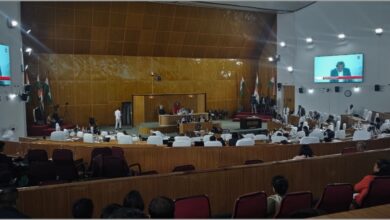Religious rituals at univ inauguration undermines indigenous faiths

Editor,
The proposal by Meghalaya’s Education Minister, Rakkam A Sangma, to consecrate Captain Williamson Sangma State University with Christian rituals is both unnecessary and contrary to the foundational principles of secularism enshrined in the Indian Constitution. While the minister’s sentiment may reflect the beliefs of a significant portion of the population, it disregards the pluralistic and diverse fabric of Meghalaya’s society and sets a troubling precedent for the role of religion in state affairs.
India’s constitutional framework mandates that state institutions remain secular, ensuring that no single religion is given preferential treatment. Publicly funded universities are intended to serve all citizens, irrespective of their faith. Consecrating the institution through Christian rituals risks alienating non-Christian communities and creating a sense of exclusion.
While Christianity may be the predominant religion in Meghalaya, the state is home to various indigenous faiths such as Songsarek, Niamtre, and Niam Khasi, as well as other religious groups. Branding Meghalaya as a “Christian state” overlooks the religious diversity that contributes to its unique cultural identity. Governance and state functions must reflect this inclusivity, not enforce majoritarian religious symbolism.
The minister’s comparison to the inauguration of the new Parliament building with Hindu rituals is problematic. Justifying one form of religious endorsement by citing another risks encouraging divisive, competitive displays of religious nationalism. This not only undermines the secular fabric of the nation but also fosters a climate of religious one-upmanship, which can be detrimental to social harmony.
A state university aims to foster intellectual growth, research, and innovation in an environment free from religious or ideological bias. Introducing religious ceremonies into the foundation of such an institution risks creating an impression of partiality, potentially affecting administrative decisions, faculty recruitment, and student representation.
As a public servant, Minister Rakkam Sangma has taken an oath to uphold the Constitution and its secular values. His proposal contradicts this commitment. By aligning state functions with religious practices, the minister compromises the neutrality expected from public officials, eroding trust in the impartiality of governance.
The inauguration of Captain Williamson Sangma State University should be conducted in a manner that reflects the shared aspirations of all citizens, regardless of their faith. A secular, inclusive ceremony that honours the contributions of the state’s diverse communities would be more appropriate, reinforcing unity and respect for constitutional values. The minister should reconsider his proposal and issue a statement reaffirming his commitment to secularism and inclusive governance.
Public institutions thrive when they are built on principles of equality and fairness. By keeping state and religion separate, Meghalaya can set a precedent for progressive, unbiased governance that serves all its people, safeguarding the rich diversity that defines the state.
Yours etc.
A citizen for education





